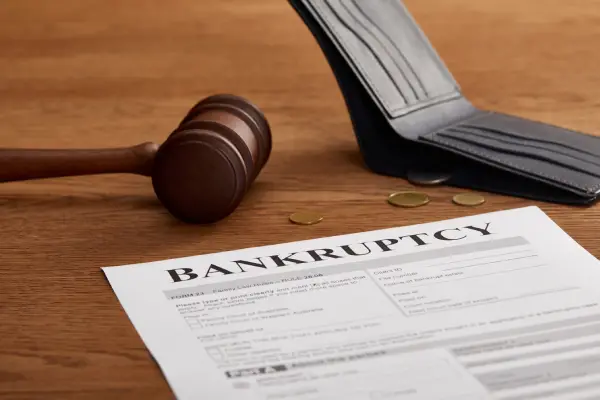
Facing personal or business financial problems can be deeply stressful. The prospect of bankruptcy can intensify these feelings, making the path ahead seem even more overwhelming.
However, it’s essential to recognize that bankruptcy isn’t an admission of failure—it’s a legal strategy to help you rebuild. Your primary task? Understanding your options. In the U.S., the two prevalent personal bankruptcy routes are Chapter 7 and Chapter 13.
This article will guide you through their differences, advantages, and disadvantages, helping you discern which might best suit your circumstances. Plus, discover how a Fort Lauderdale bankruptcy attorney or others near you can be invaluable allies throughout the process.
Chapter 7 Bankruptcy: Liquidation
Think of Chapter 7 as hitting the reset button. It’s often called ‘straight’ or ‘liquidation’ bankruptcy. In this process, a trustee sells your non-exempt assets, such as second homes or additional cars, to settle debts with creditors.
One way to determine your eligibility for Chapter 7 is through the Means Test. Imagine you’re a fresh college grad, with little income. Your qualification might solely be due to your income level and small business budget.
Furthermore, qualifying is also about specific financial thresholds. If your six-month average income is below the state’s median, you meet Chapter 7 bankruptcy income requirements.
If Chapter 7 appears to be the right fit for your situation, it’s wise to consult an expert. A bankruptcy attorney in West Palm Beach, FL, or another trusted professional you prefer, can offer essential guidance throughout your journey.
Advantages Of Chapter 7 Bankruptcy
Chapter 7 provides distinct benefits:
- Quick relief from qualifying debts: This form of bankruptcy can free you from certain debts in just a matter of months, providing a faster financial reset. As a last option, these solutions can give companies the relief options to make their small business succeed.
- Absence of drawn-out repayment plans: Unlike other bankruptcy types, Chapter 7 doesn’t bind you to long-term payment schedules, easing the stress of monthly financial commitments.
- Potential to retain cherished assets: Even during liquidation, there’s a chance to keep some specific assets, such as a valued vehicle you’ve grown attached to.
In essence, Chapter 7 offers a pathway to financial debt relief that balances swift debt resolution with the possibility of preserving some personal assets.
Drawbacks Of Chapter 7 Bankruptcy
While Chapter 7 offers various advantages, it also has its challenges:
- Loss of non-exempt assets: There’s a genuine risk of losing properties not protected under bankruptcy exemptions.
- Credit score impact: This bankruptcy type can leave a mark on your credit report, potentially for up to a decade. This can affect future borrowing opportunities.
- Non-dischargeable debts: Not all debts get cleared away. Certain debts, like student loans, often remain, requiring separate solutions.
When pondering the prospect of Chapter 7 as your financial pathway, it’s vital to balance its advantages against the inherent challenges.
Chapter 13 Bankruptcy: Reorganization
If you have a regular income, Chapter 13 bankruptcy might be a viable option for you. Often referred to as the ‘wage earner’s plan,’ this approach is designed to allow you to restructure and repay your debts. This is what you can learn from Canadian debt.
Leveraging your consistent earnings, you’d craft and propose a court-approved repayment plan. This plan, typically spread across 3-5 years, is tailored based on your income, expenses, and types of debt. This is to ensure you can meet essential living costs while simultaneously addressing your financial obligations.
Advantages Of Chapter 13 Bankruptcy
Chapter 13 comes with several unique benefits:
- Protection of prized assets: This route can act as a shield for valuable possessions, potentially saving your family home from the dreaded foreclosure.
- Structured repayment: It offers a systematized approach to make up for missed mortgage or vehicle payments, providing a roadmap to financial security.
- Resolution of stubborn debts: In some scenarios, debts that Chapter 7 won’t touch may find resolution under Chapter 13’s provisions.
These are some of the advantages. However, Chapter 13 bankruptcy has its drawbacks too.
Drawbacks Of Chapter 13 Bankruptcy
Here are some of the drawbacks to consider:
- Extended commitment: It’s a longer journey towards financial freedom, often stretching 3-5 years.
- Allocation of disposable income: Every bit of your extra income goes towards the repayment plan. Those dreams of an extravagant getaway? Best to reconsider.
- Accruing small business legal requirements and expenses: Given the process’s duration, you might find legal fees piling up, adding to the financial strain.
Considering Chapter 13 means understanding the balance between its protective benefits and the commitment it demands.
Making Your Choice
When making your bankruptcy choice, you’ve got to consider factors such as your financial goals, the nature of your debts, and your current income and expenses. If you’re looking to protect cherished assets and have a stable income to support a repayment plan, then Chapter 13 might be suitable for you. However, if you’re grappling with overwhelming debt and seeking swift relief, Chapter 7 could be a more fitting choice.
Armed with this knowledge, consult with an attorney to make an informed decision. Remember, the ultimate goal is a brighter financial future, living frugally and understanding your options is your first step.
 Business First Family Business, Accounting, Finance, Investing, Marketing And Management
Business First Family Business, Accounting, Finance, Investing, Marketing And Management